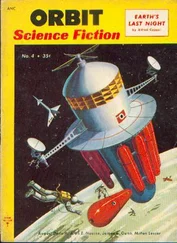Otto said, “Drop me off at the bus terminal, then.”
With relief, Steiner said, “Good enough. And you won’t have to endure those Israelis.”
Eyeing him, Otto said, “I told you, Norbert, I don’t mind them.”
Together, they entered the ‘copter, and Steiner seated himself at the controls and started the engine. He said nothing more to Otto.
As he set his ‘copter down at Weizmann Field north of New Israel, Steiner felt guilty that he had talked badly about the Israelis. He had done it only as part of his speech designed to dissuade Otto from coming along with him, but nevertheless it was not right; it went contrary to his authentic feelings. Shame, he realized. That was why he had said it; shame because of his defective son at Camp B-G . . . what a powerful drive it was, it could make a man say anything.
Without the Israelis, his son would be uncared for. No other facilities for anomalous children existed on Mars, although there were dozens of such institutions back Home, as was every other facility one could think of. And the cost of keeping Manfred at the camp was so low as to be a mere formality. As he parked his ‘copter and got out, Steiner felt his guilt grow until he wondered how he could face the Israelis. It seemed to him that, God forbid, they might be able to read his mind, might somehow intuit what he had said about them when he was elsewhere.
However, the Israeli field personnel greeted him pleasantly, and his guilt began to fade; evidently it did not show after all. Lugging his heavy suitcases, he crossed the field to the parking lot where the tractor-bus waited to take passengers into the central business district.
He had already boarded the bus and was making himself comfortable when he remembered that he had not brought any present for his son. Miss Milch, the instructor, had told him always to bring a gift, a durable object by which Manfred could recall his father after he had left. I’ll just have to stop somewhere, Steiner said to himself. Buy a toy, a game perhaps. And then he remembered that one of the parents who visited her child at Camp B-G ran a gift shop in New Israel; Mrs. Esterhazy. He could stop there; Mrs. Esterhazy had seen Manfred and understood about the anomalous children in general. She would know what to give him, and there would be no embarrassing questions such as, How old is the boy?
At the stop nearest the gift shop he got off the bus and walked up the sidewalk, enjoying the sight of small, wellkept stores and offices. New Israel in many ways reminded him of Home; it was a true city, more so than Bunchewood Park itself or Lewistown. Many people could be seen, most of them hurrying as if they had business to conduct, and he drank in the atmosphere of commerce and activity.
He came to the gift shop, with its modern sign and sloping glass windows. Except for the Martian shrub growing in the windowbox, it could have been a store in downtown Berlin. He entered, and found Mrs. Esterhazy standing at the counter, smiling as she recognized him. She was an attractive matronly woman in her early forties, with dark hair, and always well-dressed, always looking fresh and intelligent. As everyone knew, Mrs. Esterhazy was terribly active in civic affairs and politics; she put out a newsletter and belonged to one committee after another.
That she had a child in Camp B-G: that was a secret, known only to a few of the other parents and of course the staff at the camp. It was a young child, only three, suffering from one of the formidable physical defects associated with exposure to gamma rays during its intrauterine existence. He had seen it only once. There were many sobering anomalies at Camp B-G, and he had come to accept them, whatever they looked like. At first it had startled him, the Esterhazy child; it was so small and shriveled, with enormous eyes like a lemur’s. It had peculiar webbed fingers, as if it had been fashioned for an aquatic world. He had the feeling about it that it was astonishingly acute in its perceptions; it had studied him with deep intensity, seeming to reach some depth in him usually inaccessible, perhaps even to himself. . . . It had seemed to reach out somehow and probe his secrets and then it had withdrawn, accepting him on the basis of what it had picked up.
The child, he had surmised, was a Martian, that is, born on Mars, to Mrs. Esterhazy and some man who was not her husband, since she no longer had a husband. That fact he had picked up from her in conversation; she announced it calmly, making no bones about it. She had been divorced for a number of years. Obviously, then, the child at Camp B-G had been born out of wedlock, but Mrs. Esterhazy, like so many modern women, did not consider that a disgrace. Steiner shared her opinion.
Setting down his heavy suitcases, Steiner said, “What a nice little shop you have here, Mrs. Esterhazy.”
“Thank you,” she said, coming around from behind the counter. “What can I do for you, Mr. Steiner? Are you here to sell me yogurt and wheat germ?” Her dark eyes twinkled.
“I need a present for Manfred,” Steiner said.
A soft, compassionate expression appeared on her face. “I see. Well--“ She moved away from him, toward one of the counters. “I saw your son the other day, when I was visiting B-G. Has he shown any interest in music? Often autistic children enjoy music.”
“He’s fond of drawing. He paints pictures all the time.”
She picked up a small wooden flutelike instrument. “This is locally made. And very well made, too.” She held it out to him.
“Yes,” he said. “I’ll take this.”
“Miss Milch is utilizing music as a method of reaching the autistic children at B-G,” Mrs. Esterhazy said as she went to wrap up the wooden flute. “The dance, in particular.” She hesitated, then, “Mr. Steiner, you know that I’m in constant touch with the political scene back Home. I--there’s a rumor that the UN is considering--“ She lowered her voice, her face pale. “I do so hate to inflict suffering on you, Mr. Steiner, but if there is any truth in this, and there certainly seems to be . . .”
“Go ahead.” But he wished now that he had not come in. Yes, Mrs. Esterhazy was in touch with important happenings, and it made him uneasy just to know that, without hearing anything more.
Mrs. Esterhazy said, “There’s supposed to be a measure under debate at the UN right now, having to do with anomalous children.” Her voice shook. “It would require the closing of Camp B-G.”
After a moment he was able to say, “But, why?” He stared at her.
“They’re afraid--well, they don’t want to see what they call ‘defective stock’ appearing on the colonial planets. They want to keep the race pure. Can you understand that? I can, and yet I--well, I can’t agree. Probably because of my own child. No, I just can’t agree. They’re not worried about the anomalous children at Home, because they don’t have the aspirations for themselves that they do for us. You have to understand the idealism and anxiety which they have about us. . . . Do you remember how you felt before you emigrated here with your family? Back Home they see the existence of anomalous children on Mars as a sign that one of Earth’s major problems has been transplanted into the future, because we are the future, to them, and--“
Steiner interrupted her. “You’re certain about this bill?”
“I feel certain.” She faced him, her chin up, her intelligent eyes calm. “We can’t be too careful; it would be dreadful if they closed Camp B-G and--“ She did not finish. In her eyes he read something unspeakable. The anomalous children, his boy and hers, would be killed in some scientific, painless, instantaneous way. Did she mean that?
“Say it,” he said.
Mrs. Esterhazy said, “The children would be put to sleep.”
Читать дальше









